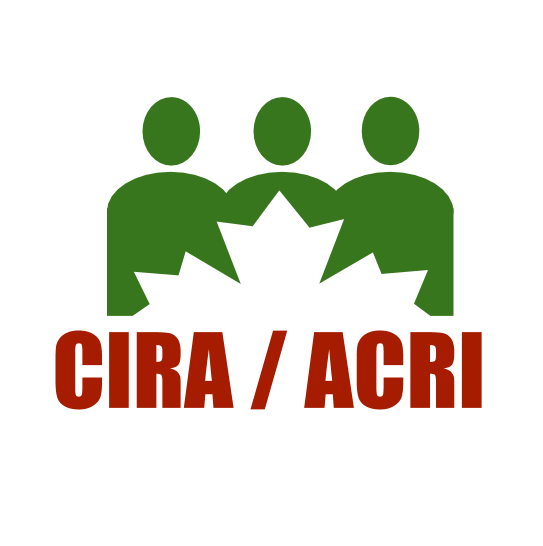EN/FR
Home | About CIRA | Membership | Journals | IR Programs | Awards | WEBINARs |
Job Postings | Contact
Past annual conferences | CIRA 2024
GOOD EMPLOYMENT RELATIONS, BETTER WORK AND HEALTHIER ORGANIZATIONS: MISSION IMPOSSIBLE?
May 24-26, 2024
LONGUEUIL, QUÉBEC
61st CANADIAN INDUSTRIAL RELATIONS ASSOCIATION CONFERENCE
CALL FOR PROPOSALS
After two years of insecurities related to a global pandemic, as well as the resulting economic and social disruptions, we are back to asking more longitudinal questions. What is the meaning of work? What role should technology play in this? How can we confront the multiple simultaneous crises that our societies are currently facing? Can we build harmonious relationships at work to find win-win solutions to these fundamental problems?
As the Canadian Industrial Relations Association (CIRA) has just celebrated its sixtieth anniversary, we invite you to join us in examining these fundamental questions and thereby defining work and employment research themes for the years to come. In the interdisciplinary tradition of industrial relations, we invite senior and emerging researchers from any of our constituent fields: labour law, human resources management (HRM), labour relations, public policy, and occupational health and safety (OHS). The conference will be a unique opportunity to take a look at common themes, as well as to present cutting-edge research topics and methodologies, specific to each of the constituent fields.
The annual conference will be held in the Montreal metropolitan region, known for its stimulating mix of languages, cultures, art and cuisine. This is the first time that the University of Sherbrooke (Longueuil) will host a CIRA conference. The campus is located directly above the “Longueuil-Université de Sherbrooke” metro station, just two stations from downtown Montreal. Doctoral students are invited to join activities specially designed for them from Thursday evening (May 23), while the congress itself begins on Friday afternoon (May 24) and will end in early afternoon on Sunday (May 26).
You can download the call for proposals in PDF format here.
We look forward to welcoming you to the University of Sherbrooke!
INTERDISCIPLINARY focus on the FUTURE of WORK
A1 — Still a friendly future? Computing a new work & technology matrix.
Whether it is management by algorithm (platform economy), the inclusion of artificial intelligence in our workplaces or the continuation of production dominated by high tech (industry 4.0), the transformation of work is in full swing. But to what end? Industrial relations and its concomitant fields of expertise will have to adapt so as not to find itself “unplugged”.
A2 — Climate, demographics, inflation: poly-crisis or poly-opportunity?
How can we do our job meaningfully when one perpetual crisis follows another: wars, natural disasters, energy supply, cost of living and interest rates. All impact the global economy, and thus, work and employment. Younger generations are pressing these issues but are far from taking over the reins from their older peers just yet. A just transition to a decarbonized economy seems impossible to reach. Mixed perspectives on a melee of potential conflicts or sustainable development avenues for a hopeful future?
A3 — Social partnership in a global economy: mission impossible?
The three actors of the industrial relations system (state, employers, unions) seem to have never been so far apart, while their agenda for developing win-win solutions continues to lengthen. On the 80th anniversary of our legal framework inspired by the Wagner Act, let us ask ourselves the question: quo vadis, conflict-partnership and social dialogue? And where are we in the quest for organizational social responsibility throughout global supply chains and combatting unfair globalization?
CUTTING-EDGE research in our DISCIPLINES
B — Labour lawyers for social justice?
Some labour lawyers and organizations are at the heart of a litigation strategy that promises to advance the legal framework in several critical areas and promote social change: temporary agency work, the right to disconnect, conditions surrounding migrant workers, discrimination, climate change, etc. How can we continue on a path that mobilizes labour law for progress in our society?
C — The strike empires back! And is it going digital at the same time?
Labour relations specialists note a renewed energy on the union side. Whether it is the organizing campaigns at Amazon, the strikes in the automobile sector or in the Canadian public service: the return to more vigorous unionism is paying off. Are we seeing a return of the strike, and if so, what forms will pressure tactics and trade union organizing take across the world in the future? And how are employers reacting?
D — Humane management of resources at the heart of our organisations.
Well-being at work is at the heart of modern human resources management. How can we combat incivility, improve recognition at work and promote inclusion and diversity in our organizations? Where are we on work-life balance? What will be the role of the different actors in the HR microcosm - not just that of managers - in this regard?
E – Protecting workers’ health in the wake of telework and new technologies.
Organizational health, in the context of teleworking and in the era of AI, poses challenges to HR managers and OHS practitioners. What are the opportunities and limits of the new Quebec law modernizing the OHS regime in this area? What is the role and impact of these technologies in terms of prevention and readaptation at work? Can we extend coverage to the so-called “self-employed” in the platform economy?
F — The State is your oyster, or the State is austere (again)?
In the wake of the ongoing concurrent crises and technological change, the state is called upon to support labour market actors with strong public policies. Unfortunately, they come with a price tag – one that many governments eschew. What trajectories for employment insurance, guaranteed income, pay equity, etc.?
Of course, these themes are merely suggestions. The organizing committee is welcoming proposals for scientific communications related to the above-mentioned tracks or any other, related research subjects. Interested individuals are invited to submit their proposals in French or English. They may also submit proposals for workshops (for example, three (3) or four (4) proposals on the same theme) or symposiums (two or more workshops on the same theme.) All proposals will be submitted to a peer evaluation carried out under the responsibility of the organizing committee.
VIBRANT EXCHANGES with our PRACTITIONERS
Benefiting from an ecosystem of researchers, practitioners, decision-makers, institutions and professional associations interlinking the four constituent areas of industrial relations, we also invite proposals for conferences or panels which will feature day-to-day experiences and an exchange of best practices. Even if we plan to sprinkle this type of activity throughout the conference programming, Friday afternoon will be a dedicated time for discussions with IR and HR practitioners.
SUBMISSION DEADLINES
Submitted proposals should be sent as 500-word summaries including the title, as well as the name and affiliation of all authors, to the organizing committee by February 15, 2024, at the following address: acri-cira2024@usherbrooke.ca. Please, indicate which themes the proposal is tied to (if any).
Acceptance of proposals will be sent out in early March, at which point presenters will need to register for the conference and ensure that their membership in CIRA is up to date. Become a member at https://www.cira-acri.ca/en-membership-form.
For more than 40 years, CIRA has given the Gérard Dion Award to a person or an organization who made a remarkable contribution to our field of study or the world of work, and we would like you to take part in the consultation process by suggesting candidates to be shortlisted. Suggestions should be made by at least two (2) CIRA members and sent no later than April 1 to the following address: communications.cira@gmail.com.
Up to eight (8) student travel scholarships will be awarded based on the merit and need of the candidacies received. Applications are due by April 1.
Students wishing to apply to the Allen Ponak Best Student Paper Award should submit a full paper before April 30 to: communications.cira@gmail.com. Both French and English student papers are welcome.
FEBRUARY 15
Proposals for the CIRA conferenceAPRIL 1
Nominations for the Gérard Dion Award
Bursary applications for student travelAPRIL 30
Full paper submissions for the Allen Ponak Best Student Paper Award
STUDENT TRAVEL SCHOLARSHIP
Up to eight (8) student travel scholarships will be awarded based on the merit and need of the candidacies received. Priority will be given to first authors. Selected recipients will receive up to $750 CDN for their travel expenses.
Payment of the scholarship will be made after the conference upon presentation of receipts for expenses incurred, up to the amount awarded. Interested persons are invited to submit their bursary application in either English or French. All requests will be subjected to peer-review, under the responsibility of the organizing committee.
Applicants must be current graduate students continuing studies as full/part-time students in the fall of 2024, pursuing a Master, PhD or post-doctorate in industrial relations or a related discipline. Priority will be given to current members of CIRA. Become a member at
https://www.cira-acri.ca/en-membership-form.
To apply, please send the following to communications.cira@gmail.com by April 1:
Complete contact information (email, phone and institutional address)
Name of current program and educational institution (for students) OR date and educational institution of obtained doctorate
Current copy of resume/CV
Copy of current university transcripts (if applicable)
A brief description of funding sources (other than the CIRA award) and other funding applications made or accepted
An abstract in English, or French of the communication proposal submitted as first author to the 2024 CIRA Congress










